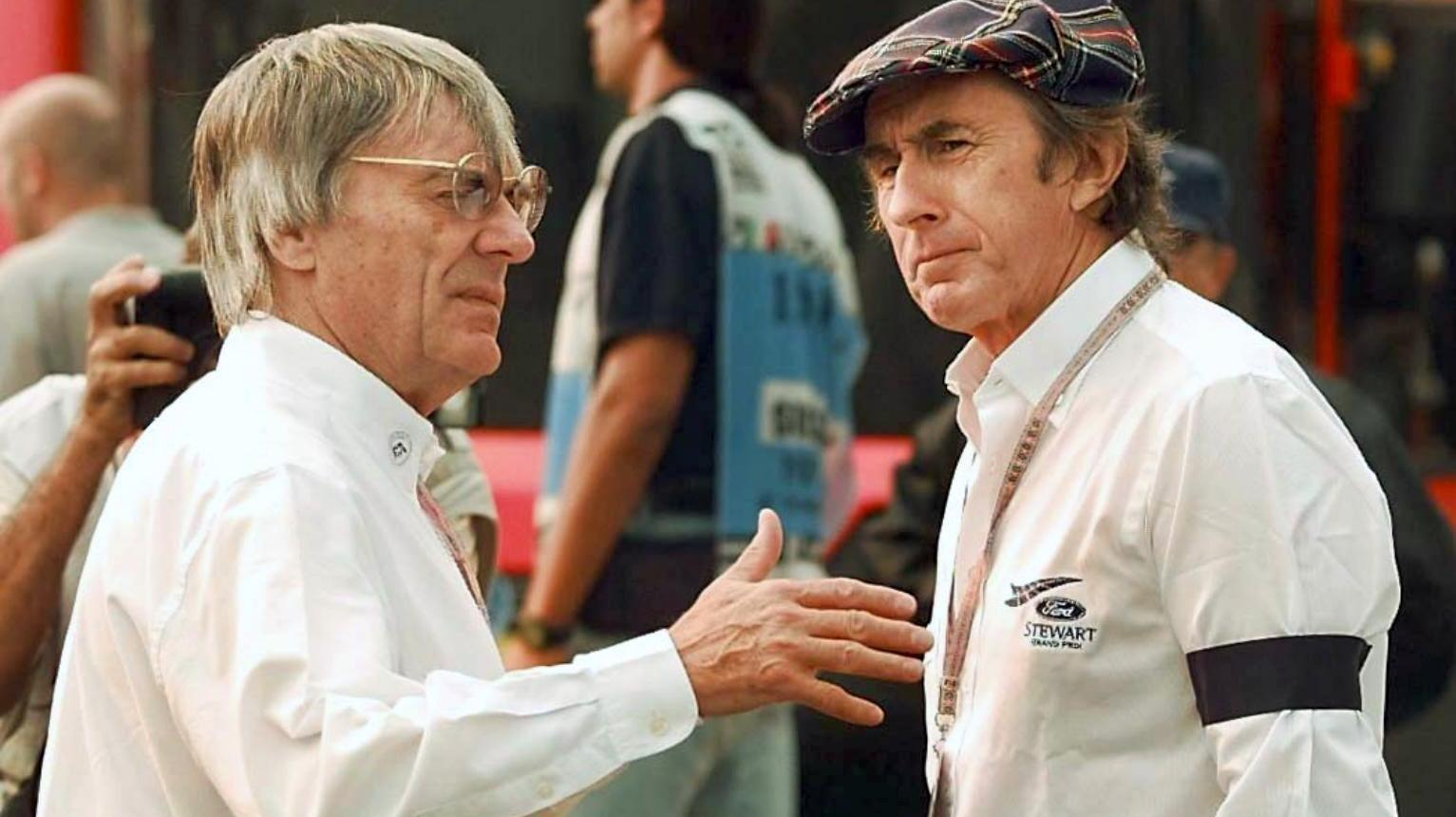Bernie Ecclestone Is The Root Of Formula One's Exclusivity Problem, Not America
Fans have taken to the internet to protest the Las Vegas and Miami Grands Prix — in part due to spectacle and ticket price
Longtime Formula One fans have been up in arms online after the sport announced its intention to contest two new races in America, one in Miami and one in Las Vegas. Many arguments have tended to blame America itself for things like the high ticket prices at events or the growing spectacle of F1 — but that thread of reasoning is misguided. If we want to point fingers at anyone for creating the conditions of F1's rampant success and subsequent exclusivity, we need to be blaming Bernie Ecclestone.
I understand the impetus to blame America for the bulk of F1's problems. I really, truly get it. We are loud and obnoxious. We force everyone to look at us, to follow our trends, to accommodate our cultural quirks, to bend over backwards for us. But Formula One did not suddenly grow more expensive or exclusive solely due to American influence. That came long before in the form of an impish man named Bernie Ecclestone.
Ecclestone's shrewd business sense saw him turn from a driver to a team owner to the functional head of Formula One throughout his lifetime, and when he was handed the reins of the series, all of Ecclestone's plans were made with one goal in mind: To make money.
As Ecclestone ascended to the become the owner and operator of Formula One, he was doing so in a sport with very little cohesion. Purses for events were small. International event coverage was minimal. There were few barriers between fan and competitor. F1 was mainly just a band of determined folks that traveled around the world each year pursuing their passions.
What Ecclestone did was weave some scattered threads together into a tapestry of capitalism, spectacle, celebrity, and technology by founding the sport's first promotional organization. F1's profile grew dramatically as Ecclestone brokered television deals and organized races in new countries around the world. As more people grew interested in the sport, Ecclestone could raise ticket prices. As ticket prices increased, so did the illusion of glamour and exclusivity F1 carries today. And with that exclusivity has come the recent uptick in popularity in formerly disinterested parties. Hell, Ecclestone even recognized the potential of the American audience and tried for decades to establish a firm F1 presence in the U.S. — but as I'll explore in a later blog, he never properly mobilized the audience.
Yes, Liberty Media, which purchased F1 from Ecclestone, is an American company — but Liberty wouldn't have purchased the series if it wasn't a high-profile championship with a massive potential for worldwide growth, especially in America. And it's not like ticket prices massively skyrocketed once Liberty took control; the company instead looked beyond F1's current fanbase to find new markets to tap. Another company would have had the same impulses.
To be honest, most of these criticisms — that America is turning F1 into too much of an expensive spectacle — simply just read as longtime European fans realizing the sport isn't just theirs anymore. It was okay that non-European fans might have to wake up early or stay up late to watch a race — but a night race in Las Vegas was simply the breaking point. Monaco's near-$1000 general admission tickets, spectacle, and celebrity were OK — but the same concept is wrong for America. Even the Gulf races were acceptable, perhaps because it was an accommodating price to pay to watch the sport.
But Americans are perceived as inherently antagonistic, like we're trying to twist F1 racing into our thing at the express exclusion of everyone else.
Trust me, we're not. Miami and Las Vegas will likely be expensive, exclusive events designed more as an exhibition of speed, style, and elitism than they will be pure racing events designed for the diehard fan — but F1 has plenty of similar races each year. F1 doesn't keep Monaco because the racing is compelling enough to justify the price tag; F1 keeps it because it's a place for the rich to schmooze. F1 doesn't keep Jeddah because the circuit rings true to the desires of the fans; F1 keeps it because it serves an important geopolitical — and financial — purpose.
At the end of the day, the Circuit of the Americas still exists as the semi-affordable option for the general race fan here in America — and the cost of attending a Miami or Las Vegas is still cheaper than traveling to an event overseas. But if you're looking to be upset at some entity for pricing fans out of motorsport, try being upset at the foundational members of the sport that turned F1 into what it is today. America had very little to do with it.
